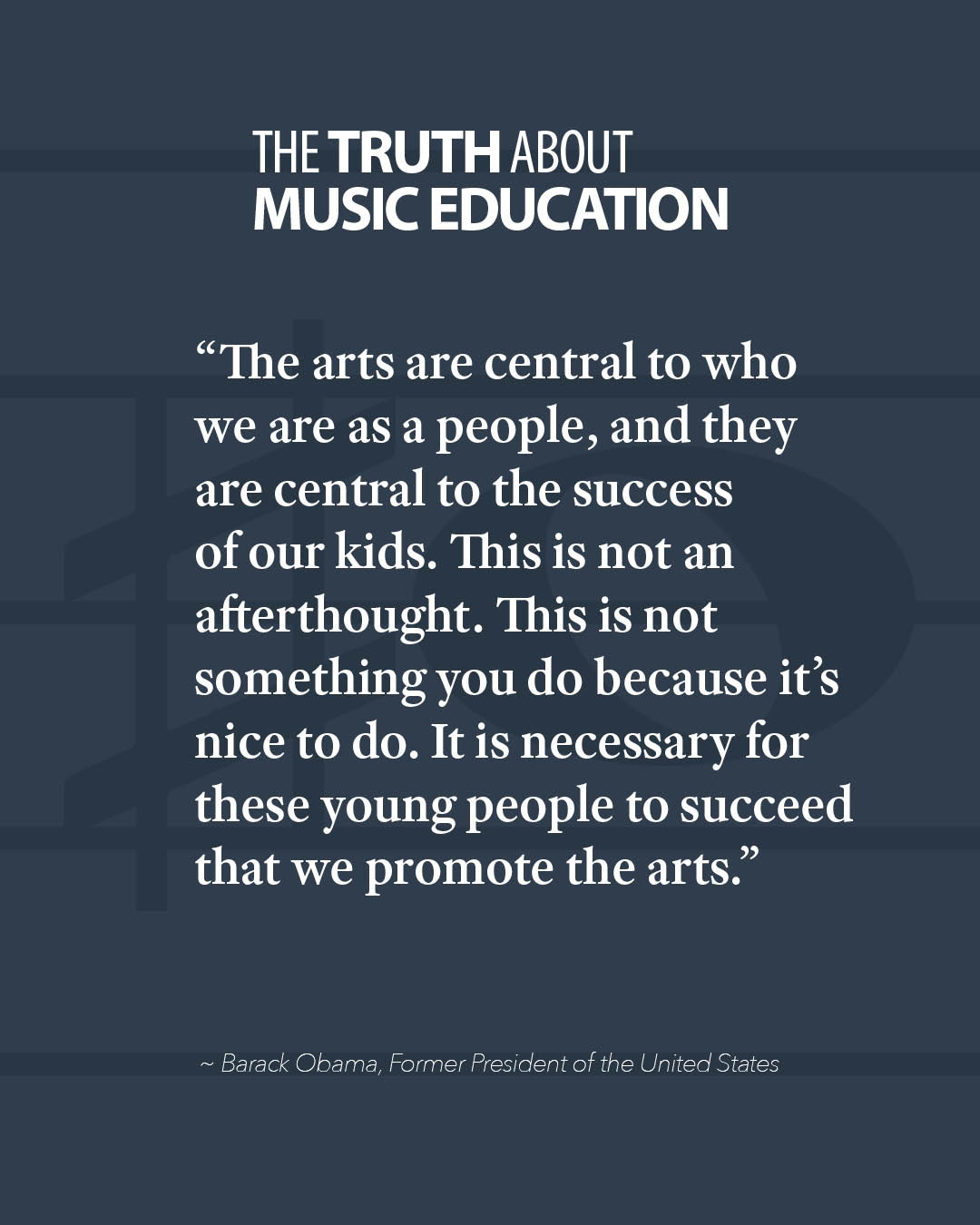The Arts Are Essential To The Success Or Our Kids

“The arts are central to who we are as a people, and they are central to the success of our kids. This is not an afterthought. This is not something you do because it’s nice to do. It is necessary for these young people to succeed that we promote the arts.”
~ Barack Obama, Former President of the United States
